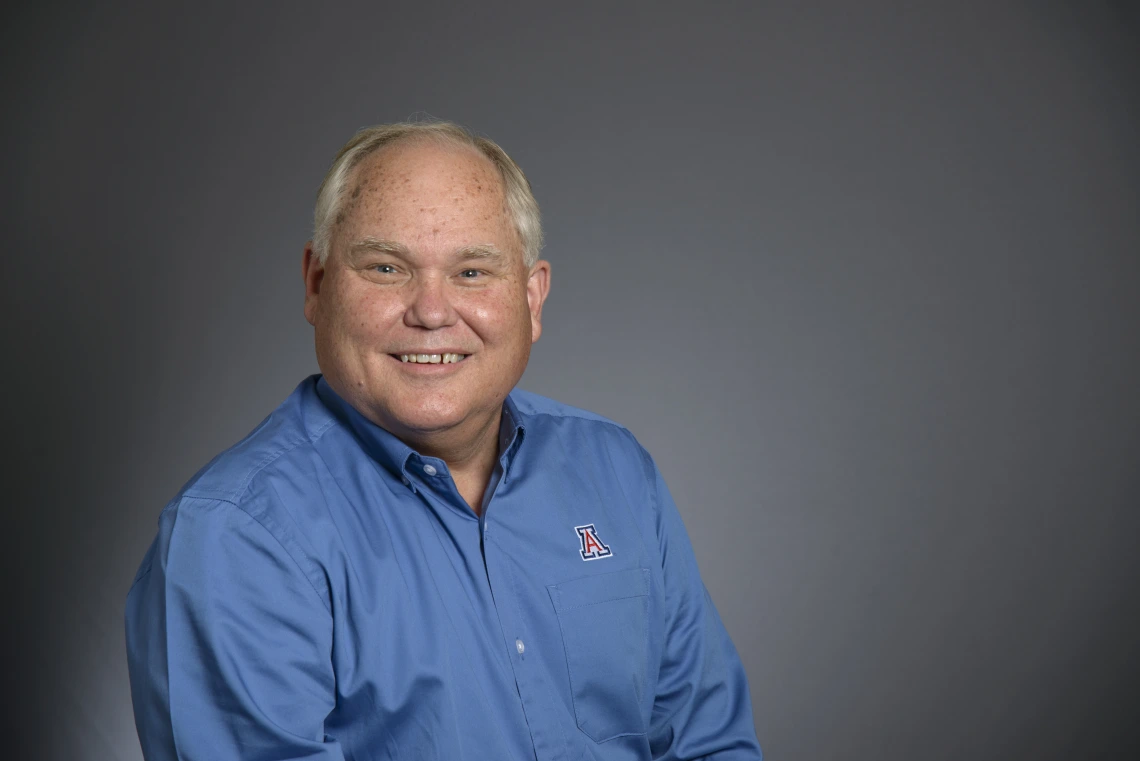Q&A With Steve Larimore On Program Changes
The lead instructor for ENGR 498 talks about this year’s changes to the program.

Steve Larimore spent 13 years sponsoring capstone projects as a Raytheon employee before he retired and joined the program in 2016. Though he started out as a mentor, he quickly became involved in the planning of the course, and is now the lead instructor for ENGR 498, or the Interdisciplinary Capstone course.
What are some of the biggest changes in the sponsor experience you’ve helped initiate in your time with the program?
We tried to help the sponsors be more involved with the process of training the next generation of engineers by adding a presentation and Q&A discussion to the ENGR 498 Open House. The presentation provides sponsors an overview of the program, outlines expectations and offers ideas for how they can maximize their involvement. This is especially helpful to new sponsors. We also added a breakfast to coincide with the presentation in 2019.
We also tried to enhance the learning environment by holding all ENGR 498 sections in the university Collaborative Learning Spaces. Unlike traditional classrooms, these spaces feature tables for groups of four to six students, tabletop whiteboards and screens throughout the room to ensure all students have a good view of the material. These are ideal for the format of our course. It allows the teams to sit together while their mentor walks from team to team to help with project development.
These changes have improved the quality of both the learning process and the final project results. There were more patent disclosures in the 2020/2021 ENGR 498 class than in any other year. We are continually looking for ways to improve the experience and the quality of our engineering graduates.
What about on the student side?
On the student side, we developed a new process specific to ENGR 498 that is helping teams to identify critical design elements of their project and prototype them early to reduce risk in their overall design. While we have tried processes like waterfall and Agile, we realized we needed our own, which adopts elements from several existing methods, to work for student engineers. For example, we have added short team assignments between all the major assignments to help students stay on task and not procrastinate. We added short "How-To" videos to support and reinforce the lecture material.
We had noticed that several teams were getting into the spring semester and discovering that a key element of their design did not work as expected, which lead to significant redesign efforts late in the two-semester course. This year, for the first time, we decided that we would require the students to identify critical design elements of their projects and prototype them in the first semester. The goal is to reduce risk and give them more time to make design adjustments if necessary. It is still early in this new process, but we are already seeing some great prototype work being done and it appears to be addressing the issue.
What changes in the timeline can we expect next semester?
We do not have any major timeline changes scheduled for next year, but we have several improvements identified for the future. For example:
- Teaching some totally online teams to match up with the online engineering degree programs.
- Starting teams in August and January to better match students’ schedules.
- Redoing our "How-To" videos and adding interactive features.
- Developing a standards book so students can more easily identify which standards apply to their projects.
- Evaluating the possibility of holding a limited number of classified projects. We have been discussing the details with some of our local military contacts and with the UA Applied Research Corporation.
- Identifying dedicated laboratory space for our students where each team could have a work bench, a basic set of hand tools and a place to lock up their materials. We hope to have an early version of such a space by 2022.
How can I share my feedback about suggested changes to the program?
We are always looking for ways to improve and welcome and encourage input, ideas, and feedback. We try to reach out to students and sponsors via surveys to gather feedback, but anyone can contact me directly at swlarimore@arizona.edu with their thoughts.

